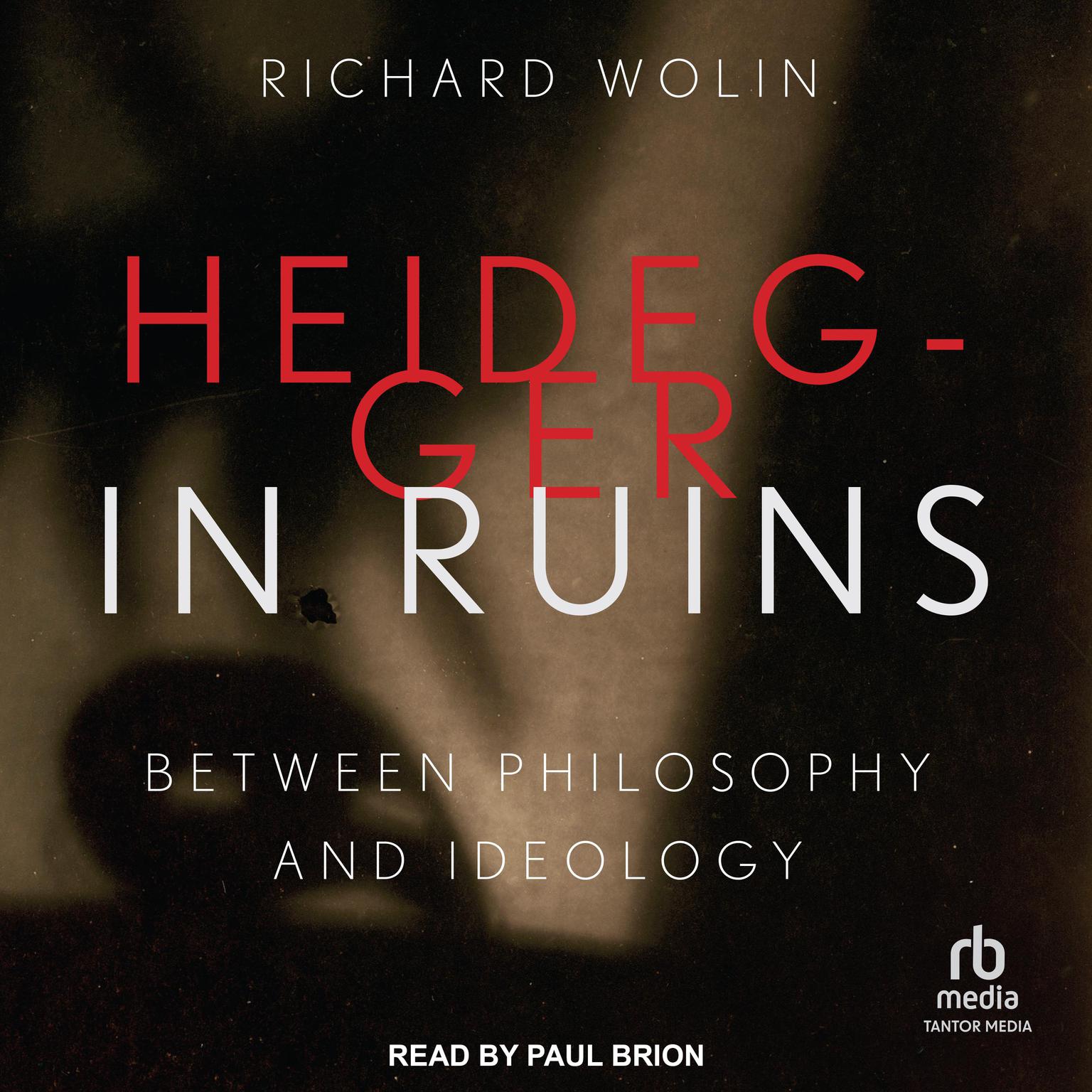 Play Audiobook Sample
Play Audiobook Sample
Heidegger in Ruins: Between Philosophy and Ideology Audiobook
 Play Audiobook Sample
Play Audiobook Sample
Quick Stats About this Audiobook
Total Audiobook Chapters:
Longest Chapter Length:
Shortest Chapter Length:
Average Chapter Length:
Audiobooks by this Author:
Publisher Description
What does it mean when a radical understanding of National Socialism is inextricably embedded in the work of the twentieth century's most important philosopher?
Martin Heidegger's sympathies for the conservative revolution and National Socialism have long been well known. As the rector of the University of Freiburg in the early 1930s, he worked hard to reshape the university in accordance with National Socialist policies. He also engaged in an all-out struggle to become the movement's philosophical preceptor, "to lead the leader." Yet for years, Heidegger's defenders have tried to separate his political beliefs from his philosophical doctrines. They argued, in effect, that he was good at philosophy but bad at politics. But with the 2014 publication of Heidegger's Black Notebooks, it has become clear that he embraced a far more radical vision of the conservative revolution than previously suspected. His dissatisfaction with National Socialism, it turns out, was mainly that it did not go far enough. The notebooks show that far from being separated from Nazism, Heidegger's philosophy was suffused with it. In this book, Richard Wolin explores what the notebooks mean for our understanding of arguably the most important philosopher of the twentieth century, and of his ideas—and why his legacy remains radically compromised.
Download and start listening now!
“For three decades, Richard Wolin has battled strong headwinds to demonstrate the links between Heidegger’s vile politics and his sublime philosophy. Wolin’s latest effort shows that the winds have shifted and the mighty fortress built by Heidegger and his defenders has been blown away.”
— Martin Jay, author of Genesis and Validity
Heidegger in Ruins Listener Reviews
Be the first to write a review about this audiobook!
About Richard Wolin
Richard Wolin is a distinguished professor of European intellectual history at the City University of New York Graduate Center. He is the author of Heidegger's Children: Hannah Arendt, Karl Lowith, Hans Jonas, and Herbert Marcuse and The Seduction of Unreason: The Intellectual Romance with Fascism from Nietzsche to Postmodernism.
About Paul Brion
Paul Brion has a passion for storytelling. He believes that audiobooks—our most current form of the oral tradition—are the purest of the interactive and co-creative arts. An autodidact with eclectic interests, he enjoys learning about a wide variety of subjects, as he has an avaricious hunger for knowledge.


